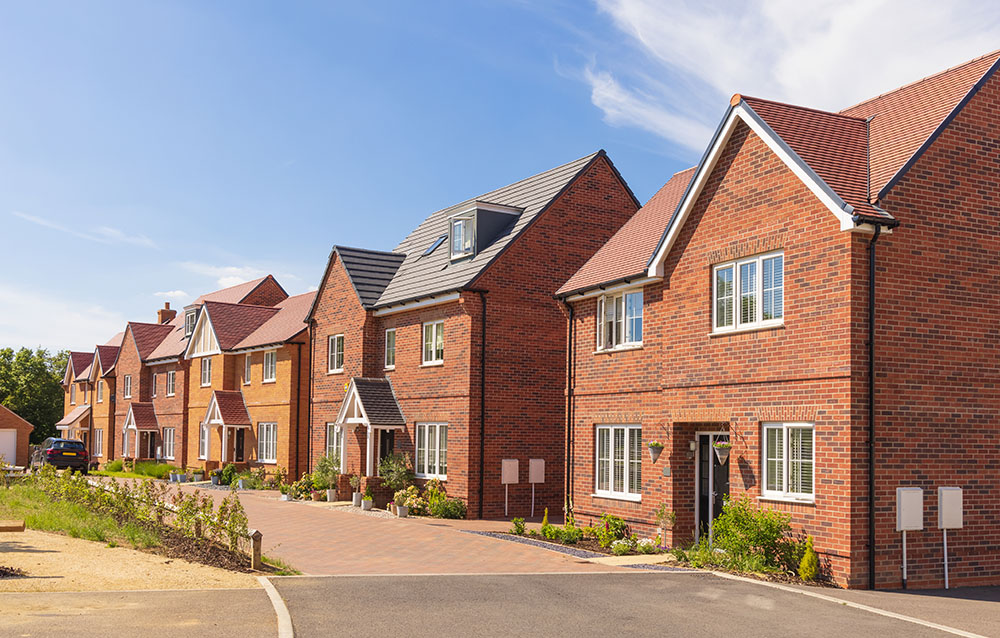Does Awaab's Law Apply To Private Landlords?

CONTENTS
- Understanding Awaab's Law
- The scope of Awaab's Law in private rentals
- Legal implications for private landlords under current law
- Mould remediation requirements for landlords
- Tenant rights and protections under current law
- Preventative measures for landlords to consider
- Get in touch
Awaab's Law is a legal framework that sets out specific standards for living conditions in social housing. Even if Awaab’s Law does not currently impact private landlords, it is important to draw attention to the guidelines it contains.
At ICE Cleaning, our mould cleaning services are paving the way in the UK as the top solution in the fight against mould. Our Dewpoint-accredited technicians can accurately identify the source of mould, its type, and how to eliminate it.
Read on to learn about the intricacies of Awaab's Law, its implications for private landlords in the UK and how it relates to their responsibilities towards maintaining a mould-free environment within residential properties.
Understanding Awaab's Law
Awaab's Law, named after a young boy who tragically lost his life due to complications from mould exposure in his home, is legislation aimed at protecting tenants from the health risks associated with poor housing conditions.
This law primarily targets social landlords and local authorities, imposing strict regulations to ensure their properties are free of harmful substances such as mould. These regulations encourage and impose:
- Mandatory regular inspections: Landlords must conduct periodic checks on their properties for signs of dampness or mould growth.
- Prompt remedial action: If issues arise during these inspections, landlords are required under this law to take immediate corrective measures.
- Tenant empowerment: Residents have the right under this law to demand necessary repairs if they identify potential hazards within their homes.
In the wake of Awaab's Law, it is clear that there is a growing emphasis on landlord accountability for maintaining safe living conditions in their properties. As such, all property owners should strive to stay informed about these legal developments and implement best practices for residential maintenance.
The scope of Awaab's Law in private rentals
While these laws do not apply explicitly to private landlords, this could change. As responsible homeowners who lease their properties, they should follow these regulations until specific legislation targeting privately owned residences comes into effect.
This means identifying and addressing any signs of mould or dampness before they escalate into serious health risks for tenants.
Failure by a landlord could potentially open up avenues for claims under general laws related issues like negligence or breach-of-contract if inadequate maintenance led directly towards adverse health impacts on occupants.
Legal implications for private landlords under current law
A failure by private landlords to adhere to the standards outlined in the Homes (Fitness for Human Habitation) Act 2018 can lead to severe legal consequences.
These could range from fines and penalties imposed by regulatory bodies such as the Health and Safety Executive (HSE) or litigation initiated by tenants who have suffered harm due to non-compliant conditions.
Despite no direct mention under current legislation, removing harmful mould growth is considered an essential duty owed by all property owners - including those leasing out residential spaces privately.
This stems from general landlord obligations under existing legislations like The Homes (Fitness For Human Habitation) Act 2018. Failure to adhere to these standards can result in tenants taking legal action, potentially leading to costly damages.
Mould remediation requirements for landlords
Despite Awaabs Law’s non-applicability towards them; private landlords remain responsible for removing hazardous conditions such as mould growth within their rented premises.
They should regularly inspect properties for signs of dampness or condensation, potentially leading to mould development if left untreated over time.
- Detection: Regular property inspections allow early detection of moisture build-up or visible signs of mildew – precursors of more significant problems like black mould infestations.
- Rapid response: Once identified, a landlord should treat mould immediately to prevent further spread and potential health risks.
- Professional remediation: Depending on the extent of the problem, it may be necessary to engage a specialist cleaning service. They can perform thorough mould remediation using professional-grade equipment and techniques.
Tenant rights and protections under current law
Several laws protect tenants in private rental, ensuring their living conditions meet standards. One example is the Homes (Fitness for Human Habitation) Act 2018, which applies in England and Wales.
This legislation mandates landlords to maintain properties so they are always fit for human habitation. The definition of 'fitness' includes freedom from serious hazards, including dampness and mould growth - issues that can significantly impact health.
Tenants’ rights regarding mould
A property that contains excessive dampness or mould is unsuitable for human habitation. Tenants have the right to live in a home free from these concerns; should they arise due to negligence on the part of the landlord's maintenance responsibilities, tenants may take legal action against them.
Landlords' responsibilities
The Act places the responsibility of property maintenance, including mould prevention and removal, squarely on landlords. They are responsible for properties, ensuring they are adequately ventilated and free from dampness that could lead to mould growth.
This includes maintaining roofs and gutters, ensuring heating systems work effectively, and tackling leaks or condensation issues promptly.
Preventative measures for landlords to consider
Landlords must understand their responsibilities under the Homes (Fitness for Human Habitation) Act 2018. One key aspect of these responsibilities involves maintaining property standards, particularly concerning mould removal.
Regular inspections are crucial to prevent mould formation. This allows early detection of potential issues like leaks or damp, which could contribute towards mould growth. Other ways to stop this include:
- Improving ventilation within the home
- Conducting a damp survey
- Placing moisture absorbers around the home
- Placing dehumidifiers in damp rooms
- Installing extraction fans in the bathroom and kitchen
- Ensuring exposed areas are sealed with anti-mould solutions
- Providing guidance to the tenant
Get in touch
For effective mould removal services, you can rely on the team at ICE Cleaning. Our technicians are mould experts, utilising the latest technology to identify the type of mould in your home and what can be done to prevent its return after removal.
To learn more about our mould remediation services, contact our team today at 0208 066 0360 or enquiries@icecleaning.co.uk. We work closely with your local council 24/7, 365 days a year, ensuring you receive the best care no matter where you are in the UK.

Speak with me today,
I’m here to help
By asking you a few questions either via phone or email I can immediately provide a realistic estimation of the cost.
You’re in good company. We’ve cleaned for the following commercial clients… View all

Why choose us?
- Cater to a wide variety of cleaning situations
- Nationwide coverage, available 24/7
- Cater to commercial and domestic clients
- Free survey provided prior to quotation
- Emergency response team
- Offer a bespoke service designed to suit all your needs
- All technicians hold professional health and safety qualifications, including BICSc, IOSH, Dewpoint Professional & Safe Contractor
We’re fully accredited
We place best practise, professional expertise and health and safety at the core of our business. We’re fully compliant with all legal obligations. You can view a list of our accreditations below, or visit our Health & Safety page for more information.











-RGB-small.1707319151.jpg)




















